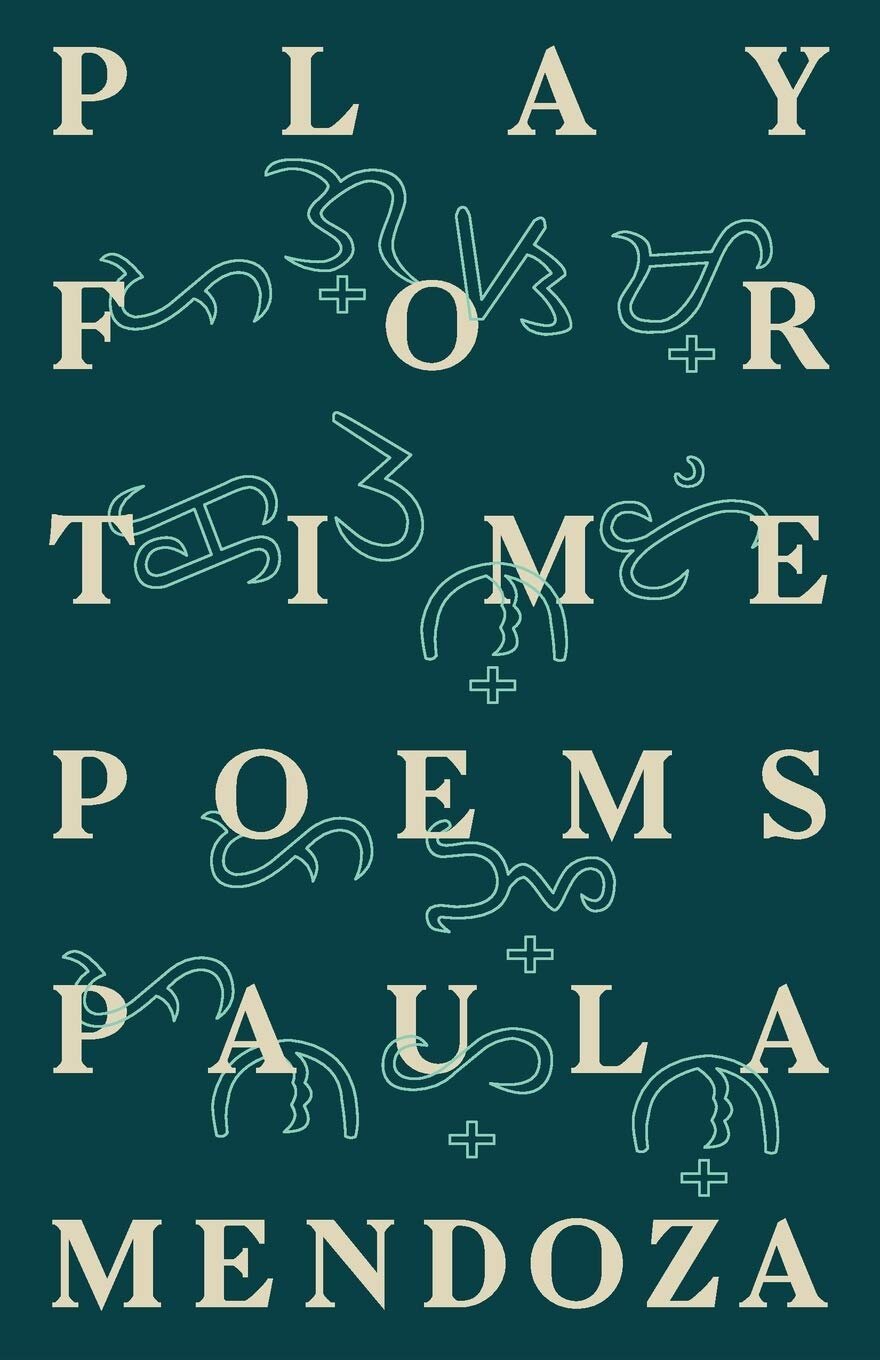Play for Time / Paula Jane Mendoza / 2020
Paula Jane Mendoza puts the hip in hypnotic. Play for Time is a collection of poetry brimming with eros, longing, and fire. Think Natalie Diaz’s diction and rhythm tempered with Traci Brimhall’s slow soothing lyric. Typically, I am skeptical of literature with absurdly obscure or “long” words, but Mendoza finds a way to make words like “aphasic,” “maugre,” and “salamandrine” absolutely succulent . That said, you might need your dictionary handle.
The organization of PFT can feel a quizzical if you if you are used to poetry collections with a linear narrative. PFT consciously writes against the linear narrative, opting for a narrative that contorts itself, is more scrambled. The section headers for example are “First,” “So,” “Then,” “Beginning,” and “Middle” with a poem called “Alternate Ending 1” in section “So” and a poem called “The End” in section “Then”—both in the middle of the book. Some poems are glibly titled “Lyric,” “Narrative Poem,” and “Sentimental “Poem,” drawing attention to their genre. Rather than detracting, these titles get fun: 1) “Lyric” sketches seductive imagery, trying to capture the ineffable sensation of eros, both as in love and a lust for life: “I have been wanting to write outside / of thinking…” Mendoza croons, “I’m stupid with spring / and impatient with those / that refuse to burst, too stubborn / to purple such sudden luxury / out the ground.” 2) “Narrative Poem” Rather than a poem that scribes the A-B-C narrative of a heartbreak, this poem centers the poet’s resistance to narrative, the desire to be removed from it. It’s very Eternal Sunshine of the Spotless Mind, and even alludes to it in the prose poem. 3) “Sentimental Poem”: God knows too many woman have been called sentimental, but how else do you write a love poem to your long distance partner? I chuckle when the speaker bashfully notes, “If I am being honest, romantic comedies are my jam.”
There is the heartbreak of a Yesika Salgado poem, where the reader throws on a novela, perrea sola, and downs some ice cream to cool the ache. Then, there is the heartbreak of a Paula Mendoza poem, where it feels more like crying in front of the bathroom sink as you try to love yourself enough to brush your teeth and fail. “I / can’t for the line of me extract any more / than I am / tired. I am tired / of myself when I think / of you and nowhere we are / headed towards, the last word / always / the first, again. Again.” If line breaks were wrist locks, readers will be wearing casts for weeks. Her poems pace and punch silence like clothesline to the neck. Take “Engineer,” for example.
Lastly, erotic poetry is notoriously difficult to write without feeling cheap. Mendoza’s erotic poems in this collection must be expensive because they stupefy. Here’s some videos if you don’t believe me. I recommend this book for anyone interested in Filipinx/Pinay literature, Asian literature, poetry, sequencing collections, erotica, feminism, and Utah.

